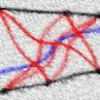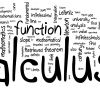 21
21Use \sum _{cyc}a\cos A = \frac{abc}{2R^2} and \frac{abc}{2R^2} = \frac{8 \Delta ^2}{abc}. So the given equality means 16\Delta ^2 = abc\left ( a+b+c \right )\iff \left ( 2s(2s-2a)(2s-2b)(2s-2c) \right )= abc(a+b+c) \iff \left ( a+b-c \right )\left ( b+c-a \right )\left ( c+a-b \right )= abc
But by AM-GM abc \ge (a+b-c)(b+c-a)(c+a-b), with equality iff a=b=c
 21
21Or, Use extended law of sines to get that the equality is equivalent to
\sum \sin A = \sum \sin 2A \iff 4\prod \left \cos\left ( \frac{A}{2} \right \right )= 4\prod \sin A or \prod \sin\left ( \frac{A}{2} \right )= \frac{1}{8} and use jensen to prove \prod \sin\left ( \frac{A}{2} \right )\le \frac{1}{8} with equality iff A=B=C
BTW if a\cos B + b\cos C + c\cos A = s a triangle will be isosceles.
 71
71@ Subhodip. Thanks. I used the first one.
Please could you elaborate the last line of second, using jensen's?